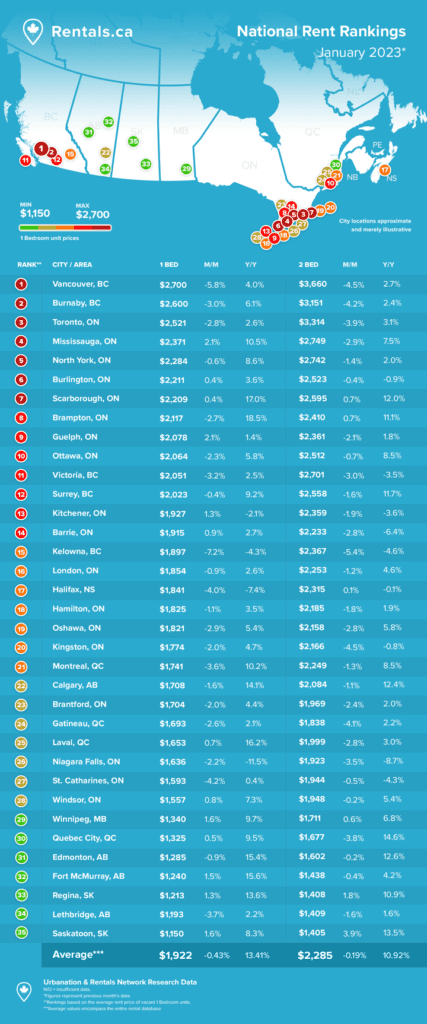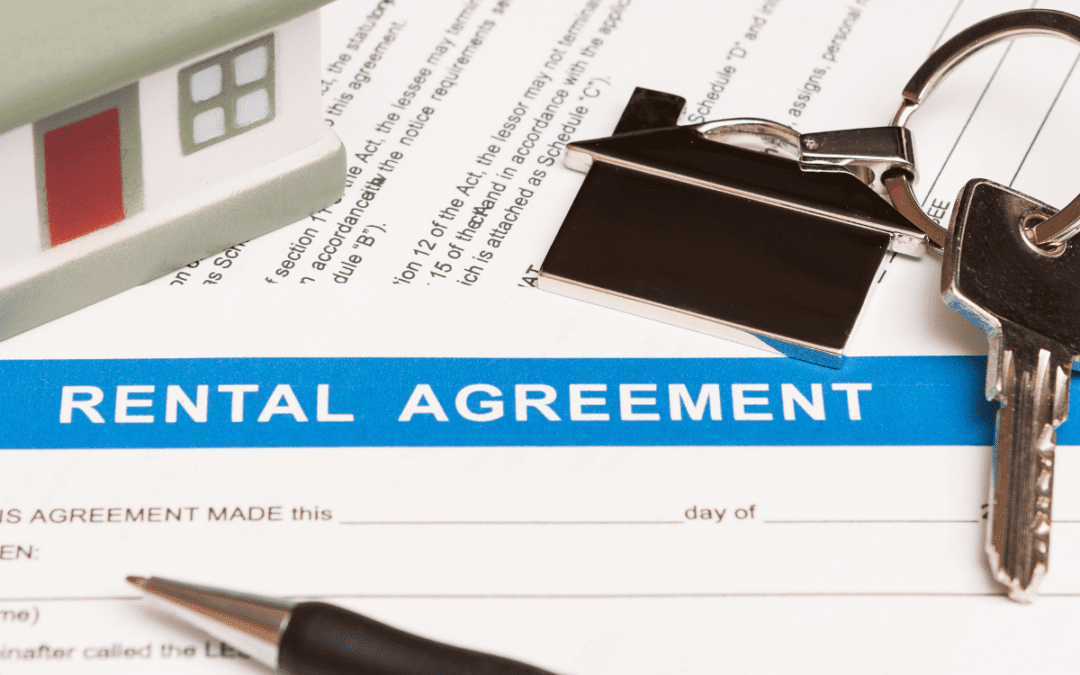Last December, the average rent across Canada reached a record-high of $2,178, representing an 8.6 per cent jump from the same time in 2022. During that year, rents went up over 12 per cent and in 2021, 4.6 per cent.
Throughout 2023, asking rents went up by 9 per cent, according to Rentals.ca and Urbanation’s National Rent Report. What’s more, Canadian asking rents went up by 22 per cent over the past two years, which equates to about a $390 per month jump.
“The rate of rent growth in Canada was stronger than expected in 2023, mainly due to a surge in non-permanent residents, a resilient economy and a sharp pullback in home buying activity,” Shaun Hildebrand, president of Urbanation, notes.
“While rents are expected to continue rising in 2024, there should be less upward pressure on the market this year as demand increases at a somewhat slower speed and more supply is added.”
How purpose-built rentals, condominiums and houses fared
Traditional purpose-built rental apartments were at $2,076 average asking rent and saw the fastest growth last year, with a 12.8 per cent climb.
On the other hand, condominium and house rentals grew slower, at 6.9 per cent and 5.9 per cent, respectively. As of December, these categories saw average rents of $2,340 and $2,354.
Standout regions
Alberta stood out with the fastest-growing purpose-built and condominium apartment rents last year out of any other province. It had a 15.6 per cent annual increase, hitting an average of $1,691.
British Columbia remained the most expensive province for apartment rents, at about $2,500 in December (despite decreasing 1.4 per cent year-over-year), while Ontario saw a 3.7 per cent annual increase, with average rents at $2,446. Quebec’s average rent rose by 10 per cent to $1,953.

The top three Canadian cities with the fastest annual rent growth were Calgary (14 per cent increase to an average of $2,071), followed by Edmonton (13.5 per cent increase to an average of $1,467) and Montreal (11.3 per cent to an average of $2,019). Vancouver’s average asking rent decreased by 0.7 per cent annually to $3,059, while Toronto’s average asking apartment rent went up by a modest 2.1 per cent to $2,832.
What’s coming this year
With influences like a slowing economy, fewer non-permanent residents, increased supply and more home buying with lower interest rates, it’s expected that the rental market will continue to be undersupplied but reach more balance. Rent increases are expected to approach 5 per cent, the five-year average.
Get the full report details here.

















